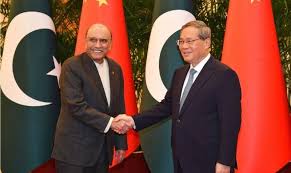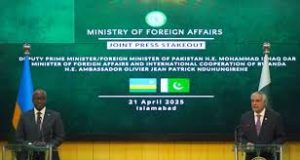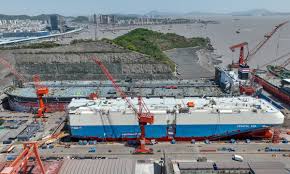Takeaways from Indian FM’s visit to Pakistan
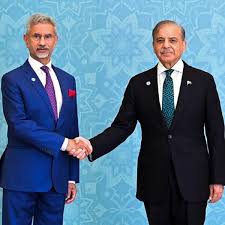
Last week, Pakistan successfully hosted the Shanghai Cooperation Organisation (SCO) meeting amid an unprecedented security lockdown in Islamabad. Security measures were necessary because just days before the SCO conference, two Chinese engineers had been killed in a terrorist attack in Karachi just outside the Jinnah International Airport. Given the geostrategic games and the presence of the Prime Ministers of China and Russia, the two powers that are challenging the US hegemony, authorities in Pakistan were taking no chances.
One of the highlights of the SCO conference was the visit of Indian Foreign Minister S Jaishankar, the first by any top diplomat from the neighbouring country in nine years. Naturally, all eyes were on him given the current state of relationship between the two countries. Relations have been so tense that Pakistani and Indian leaders don’t even shake hands in public. Against this backdrop, Jaishankar’s visit was being keenly followed. Although the Indian foreign minister had ruled out any bilateral engagement with Pakistan during the SCO meeting, the fact that he travelled to Islamabad despite tension was seen as a forward movement.
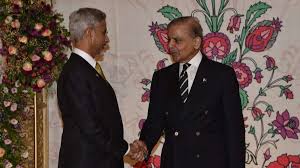
Yet, there was skepticism about the possibility of any breakthrough during his visit. It was because when former foreign minister Bilawal Bhutto Zardari visited Goa in May last year for the SCO Council of Foreign Ministers meeting, his visit aggravated the already tense ties. Both sides traded blame in their speeches. The Indian Foreign Minister used the kind of language against Bilawal and Pakistan that was even found undiplomatic by Indian journalists and commentators. Hence, the major challenge for both sides was to ensure that the visit of the Indian Foreign Minister went without any hiccup or mishap we saw in Goa.
Hours after landing at the Noor Khan Airbase in Islamabad, the Indian Foreign Minister was invited to a dinner hosted by Prime Minister Shehbaz Sharif in the honour of SCO delegates. When Jaishankar arrived at the PM House, Shehbaz received him and both shook hands, the first public handshake since 2017. The body language of both the leaders was a bit shaky – not surprisingly though, as only a few days ago, the two leaders had lashed out at each other at the UN General Assembly session in New York. During the dinner, Jaishankar had a pull-aside with his Pakistani counterpart, Ishaq Dar. They were also joined by Interior Minister Mohsin Naqvi. The conversation, according to sources, lasted around 7 minutes. While there was no certain word on what was discussed there, but certainly there was a departure from the previous positions that both sides held, as they had avoided such informal meetings in multilateral forums.
The impact of the informal meeting was visible the next morning when Jaishankar arrived at the Jinnah Convention Centre for the SCO meeting. He was received again by PM Shehbaz and this time the handshake was far more relaxed and pleasant. The next big test was the speeches the two leaders were to deliver. Often Pakistan and Indian leaders used such forums to accuse each other. PM Shehbaz, as the host of the conference, opened the forum and did not mention India or Kashmir in his speech. When Jaishankar took the podium, he also avoided directly pointing a finger at Pakistan. By that time it was clear that both sides were trying to lower the rhetoric. The discreet messaging during the conference led to a seating arrangement that allowed Indian Foreign Minister Jaishankar to sit alongside Deputy Prime Minister and Foreign Minister Ishaq Dar during the luncheon hosted for the SCO delegates.
According to officials, both sides had to do a lot of management in order to avoid any unpleasant situation during Jaishankar’s visit. The tweet by the Indian FM before leaving Islamabad thanking Pakistan for “hospitality and courtesies” suggested that those efforts paid dividends. But the question is: will the positive momentum created during Jaishankar’s visit to Islamabad lead to any rapprochement?

